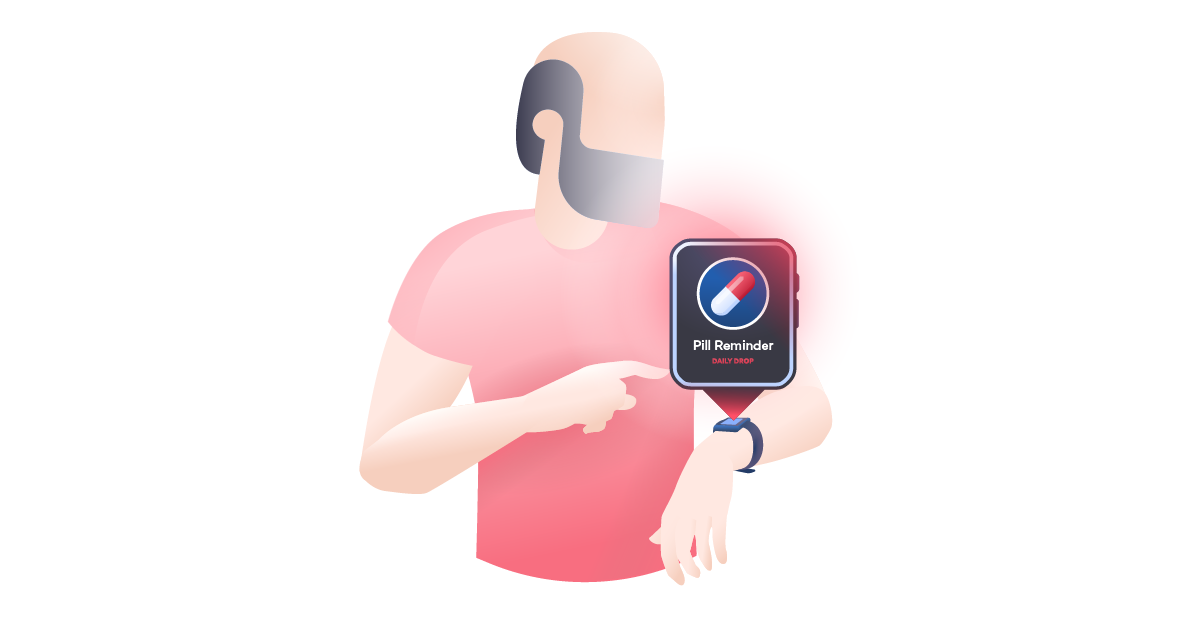Can a smartwatch hack kill you?
While smartwatches can help monitor your health and offer valuable data, they can also turn into dangerous weapons. Researchers have revealed that hackers can send fake pill reminders to patients whenever they want.

Smartwatches designed for elderly people track patients’ locations, call caretakers, and send medication reminders. However, UK-based Pen Test Partners found one medical smartwatch that could be hacked to send notifications at will. A dementia patient, for example, could be inundated with reminders to take pills, which could lead to severe health problems or even death.
Security flaws in the back-end cloud system, known as SETracker, were soon fixed, but it’s still unknown if any users were affected. Unfortunately, it’s not clear whether other smartwatches might have similar vulnerabilities.
A hostile world of smart devices
While you can find plenty of different smart devices online, it doesn’t mean they’re all reputable and take good care of your data. In 2019, researchers found an insecure cloud platform owned by Chinese company Thinkrace that put 47 millions devices used to track children at risk of being hacked.
Hackers could see children’s locations and access the cloud, which contained voice messages between the child and the parents. A device you thought might help care for your son or daughter could instead put your family at serious risk. A hacker could send a message to your child’s smartwatch and convince them to open the door when you’re away.
Smartwatches, baby cameras, GPS trackers, smart home systems — all smart and IoT devices carry sensitive information that could bring heavy consequences if hacked. Researchers claim that many manufacturers have no official privacy policies and often forget to strengthen security.
How to stay safe
1. Choose the brand carefully
Avoid buying smart devices from unknown manufacturers. Thoroughly research the company, their privacy policies, and their reputation. If it looks shady or has been involved in security incidents like smartwatch hacks or data breaches, avoid it at all costs.
2. Use strong passwords
Unfortunately, many users stick to default passwords that can be cracked in a snap or use common passwords like 123456 without understanding how weak they actually are.
We recommend using special characters, numbers, capital and lower-case letters in your password and changing it regularly.
3. Enable two-factor authentication
Your password is just the first frontier. Two-factor authentication is the second. It wraps your account with an extra layer of security. When enabled, two-factor authentication asks you to type a security code sent by SMS or authentication app to log in. Even if your password were exposed, a hacker won’t be able to access your account.
4. Always update your device
Developers update devices for a reason: they fix known bugs, add new features, and improve security. While it’s tempting to postpone updates, this delay could cost you much more in the long run. Hackers are always looking for flaws, and developers try to stay one step ahead of them.
5. Educate your loved ones
Teach elderly people, children, and less advanced users about cybersecurity risks as they are the most vulnerable groups to cyber attacks. While you can benefit from smart tracking devices, it’s also important to understand how to protect yourself.
Want to read more like this?
Get the latest news and tips from NordVPN